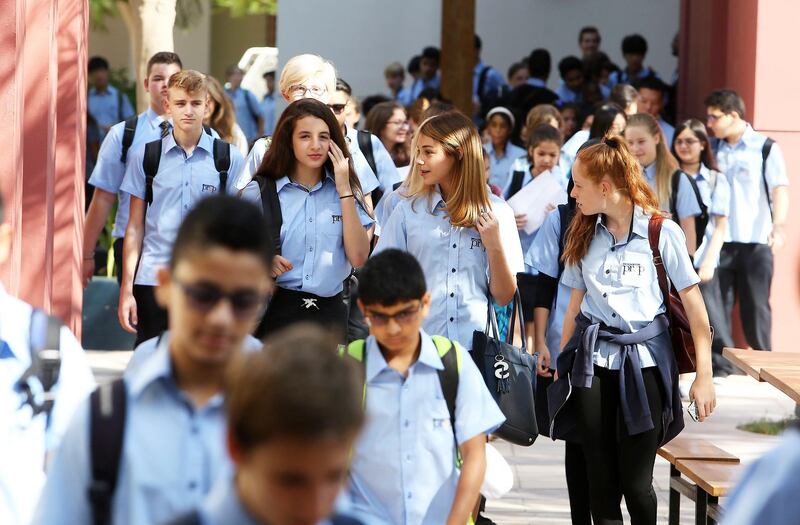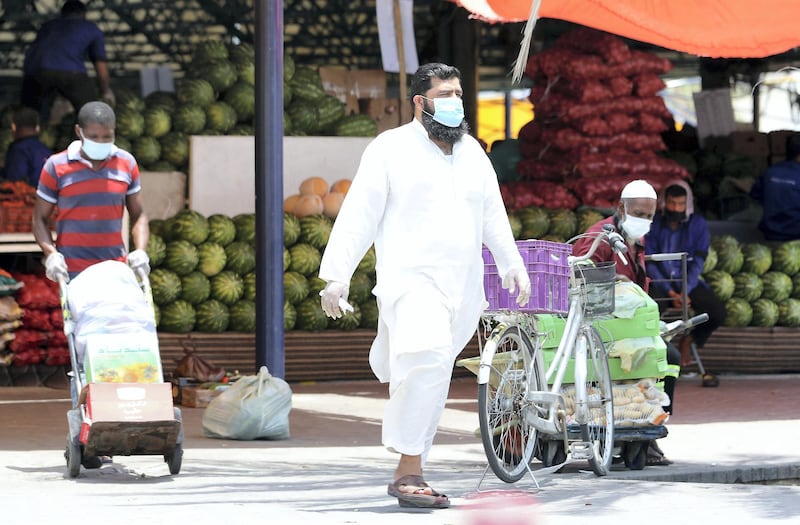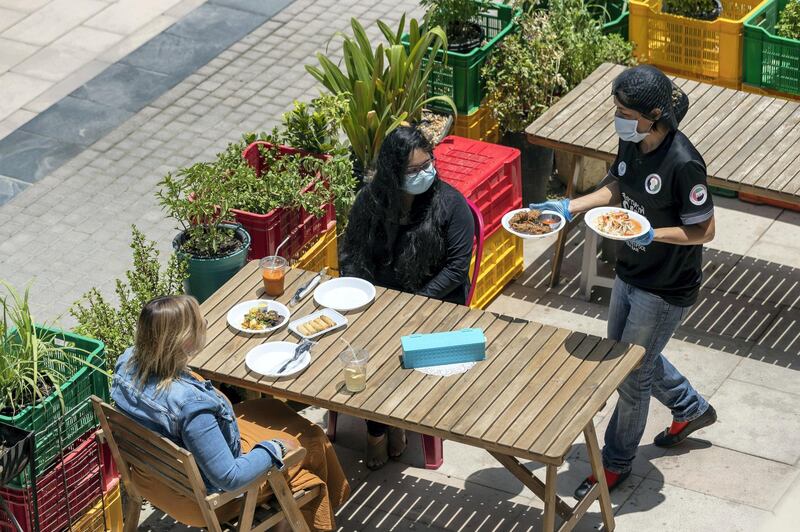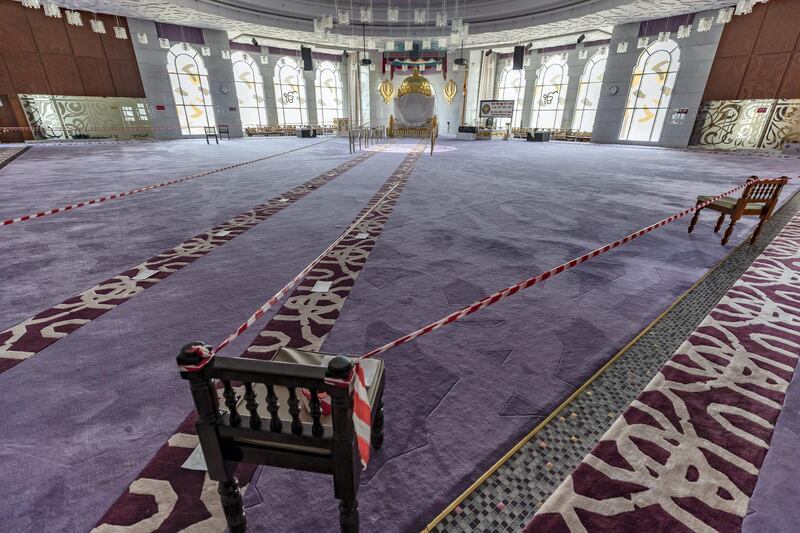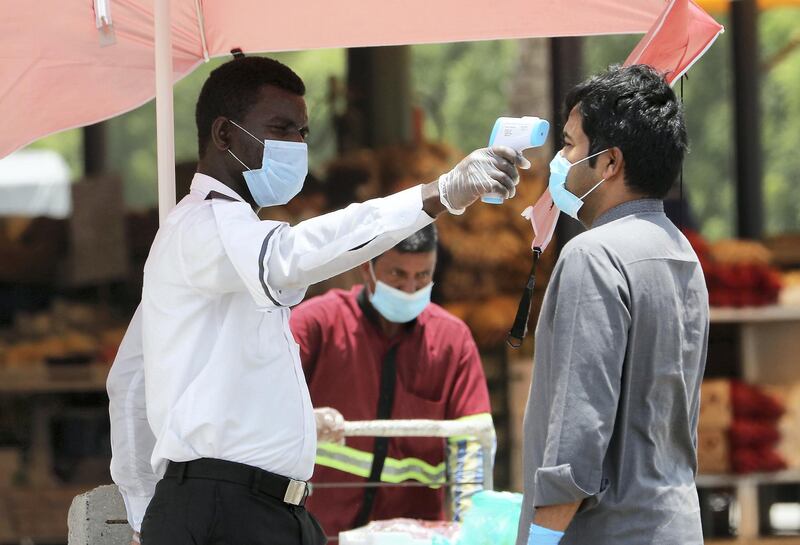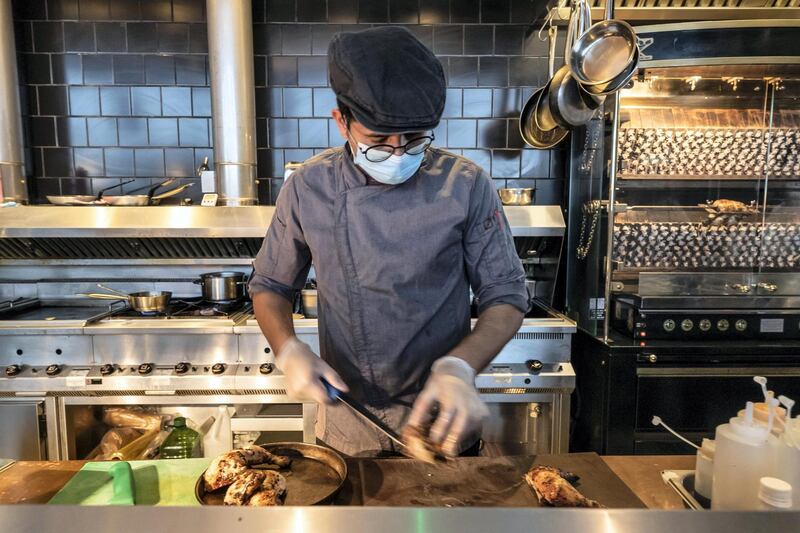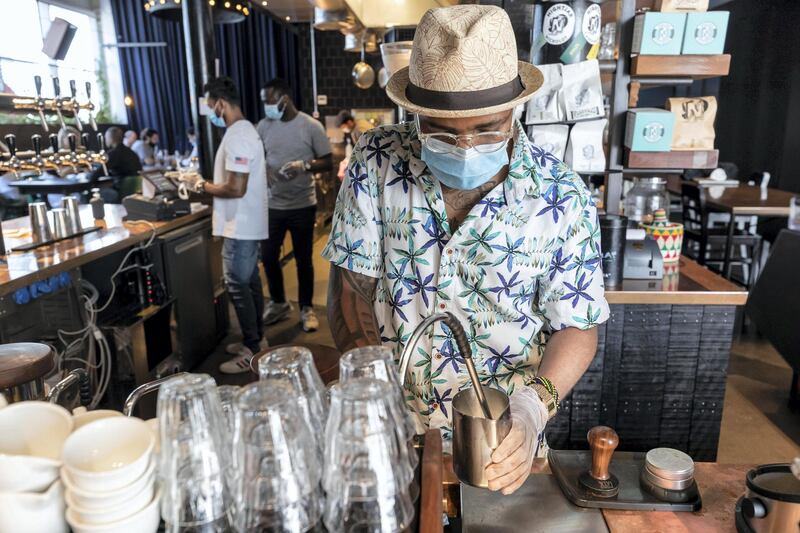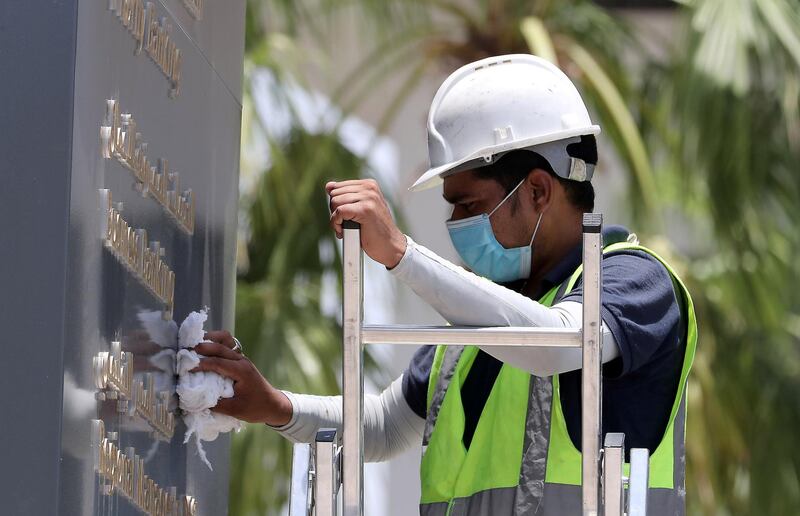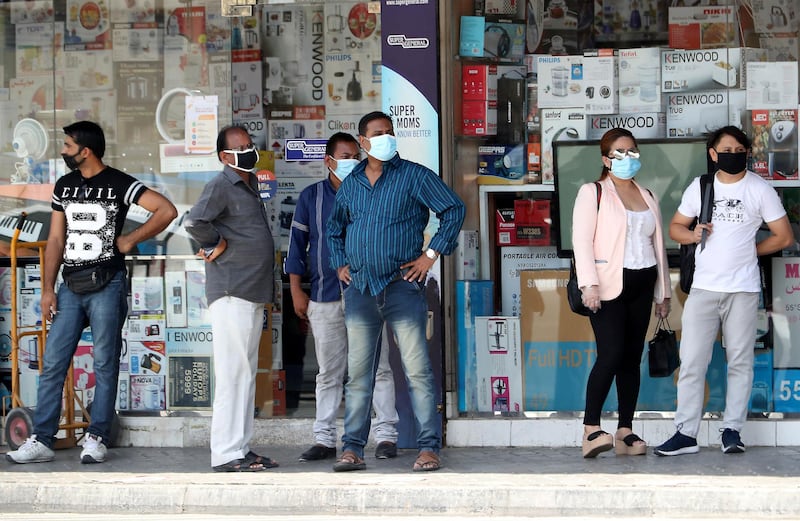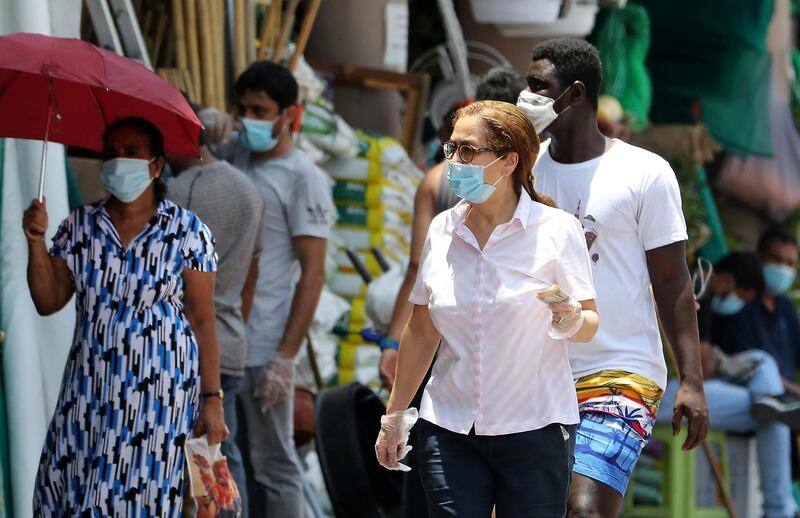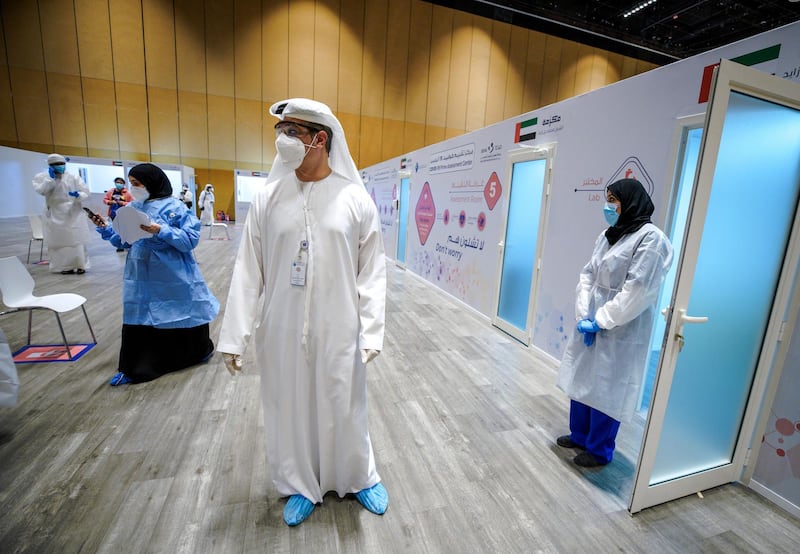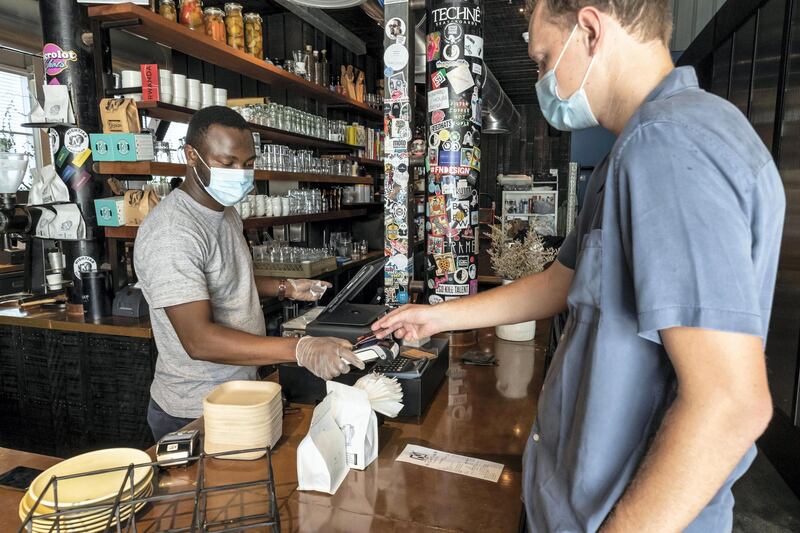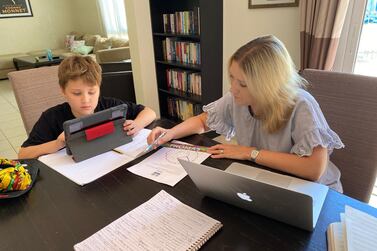The UAE's most expensive schools could take the biggest financial hit from the coronavirus pandemic, as parents look to make savings and weigh up the impact of longer-term study from home.
Education analysts predict many parents will look at moving their children to more affordable mid-tier schools after the summer.
Maya El Hachem, managing director and partner at Boston Consulting Group, said the fact that top schools' sporting facilities and other assets may remain closed would be a factor.
“Parents will want to move [their children] to affordable schools," said Ms El Hachem, who is based in the global consultancy's Dubai office.
"We may also see Emirati parents shift from private to public education,” she said, in reference to the free government-run school system.
“Schools need to be concerned about retaining pupils because some families are going to lose their jobs and might want to relocate."
She said some parents had already begun moving their children and there has been an increased interest in homeschooling, in which parents teach their own children using an online curriculum, though it remains relatively rare.
School operators including Taaleem and Gems Education, the country's two largest groups, have begun preparing for a "blended" model that would see groups of pupils study at home and in school at different times of day, presenting parents with childcare challenges.
"High fee paying schools were operating below their capacity [before the pandemic] and there was already a need in for lower fee schools that provided excellent quality education. This problem was apparent before the Covid-19 crisis," said Ms El Hachem.
“I think we will see some of the schools facing a situation of not being able to financially sustain themselves and if they don’t get direct support they may consider closing down.”
Rising School in Nad Al Sheba, an American primary that opened in 2017 and charged between Dh33,000 to Dh52,000, said it would close its doors on July 2, citing the virus outbreak as the reason.
Schools worldwide had to spring to action when their campuses were closed to prevent the spread of the virus. Logistical challenges had to be quickly overcome, including investing in online programmes as well as training teachers.
"The UAE as a country has one of the highest proportions of private education in the world compared to public," said Ms El Hachem.
“There has been a proliferation of very high fee-paying schools in the past few years opening up.
"And these are struggling the most as they have invested the most in infrastructure but don’t have an established student body or a strong reputation yet."
She said mid-range schools operate at lower margins and are more resilient to shocks.
More than 810,000 pupils attend the UAE’s 643 private schools. About 280,000 pupils, mostly Emiratis and Arabic speakers, attend 600-plus public schools.
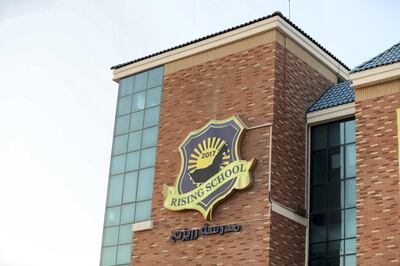
Dubai's private school regulator, the Knowledge and Human Development Authority (KHDA), said 41 new schools opened in the emirate between 2016-2019, bringing the total to 209. Eight new schools were due to open in Dubai by September 2020, creating more than 13,000 new places.
Since 2016, 10 private schools have merged or closed in Dubai, according to KHDA.
The regulator dissuaded parents from homeschooling their children - a controversial form of education - saying that pupils who do not complete their third term this year will be considered for withdrawal from school. If they wish to be signed up for the 2020/21 academic year, pupils must present a "transfer certificate" from their previous school stating that they have finished the year.
Asked about how private schools may have to adapt to a post-coronavirus future, KHDA directed The National to an online session presented by its director general Dr Abdulla Al Karam, who said changes would have to be made.
"Today, we are thinking about what the post Covid-19 world will look like, and we are certain that this global crisis has presented a unique opportunity that allowed us to create a positive change in our view of the educational system,” said Dr Al Karam.
“What was considered good enough in the past will not suffice moving forward.”
Dr Leila Hoteit, a senior partner at Boston Consulting Group, said schools will have to heavily invest in digital platforms to offer high quality education to pupils of all backgrounds online.
She also said there had been a race between schools to provide the most attractive physical facilities, including sprawling sports centres.
"That’s part of the reason why education here was one of the most expensive in the world," she said.
"It was not that the schools were making huge profits but they had two major sources of cost, spending on beautiful facilities and on international teachers.
"Also, many high fee-paying schools came on at the same time. In the future, authorities need to co-ordinate that these do not all launch at the same time."
Kalthoom Ali Salem, a committee member of Education Business Group, which represents more than 100 private schools in UAE, said operators had already offered fee discounts and appealed to parents to support their children's schools.
“Non-payment of fees by pupils, the provision of discounts, and uncertainties regarding new enrolments and variable operational costs is putting tremendous pressure on schools that can affect operational continuity," she said last week.
